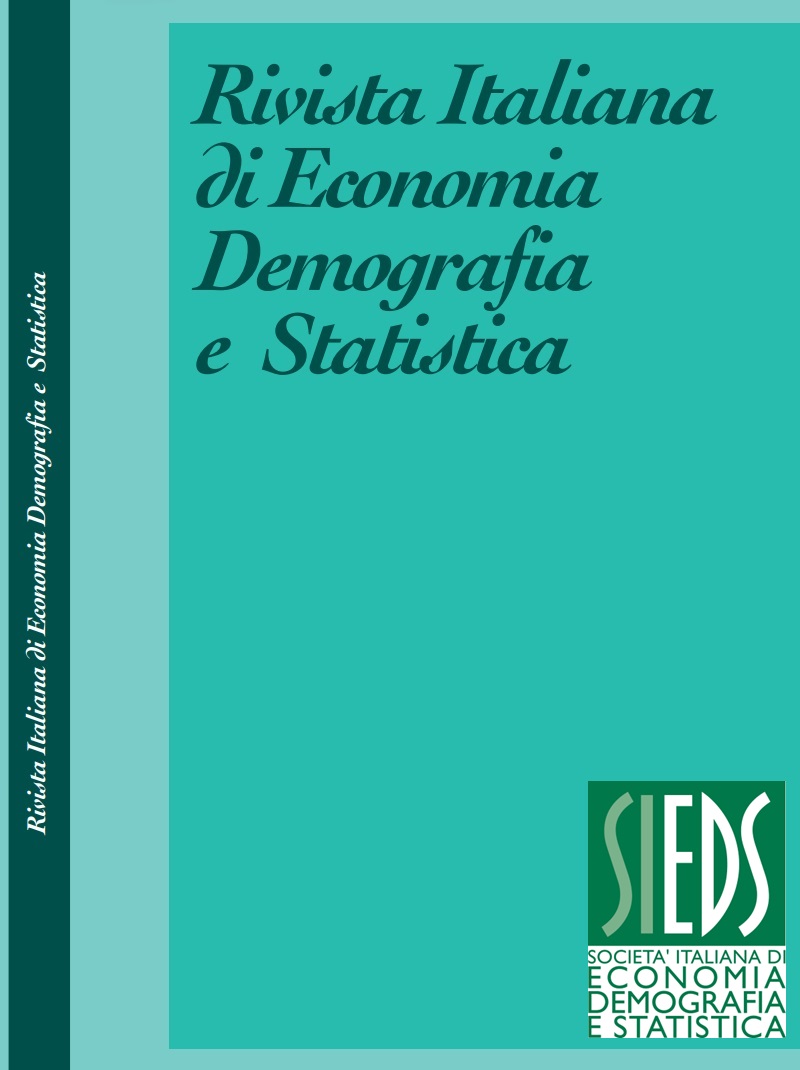Gender differences in the subjective perception of parenting time
Abstract
We use data from the latest edition of the Italian Time Use Survey (2013-2014) and select a subsample of mothers and fathers of children aged up to 14 years to measure gender differences in parents’ subjective perception of childcare time. Based on childcare episodes’ enjoyment scores, we build a dichotomous indicator of unpleasantness and use it as dependent variable in a logistic model. Our explicative variables are gender, multitasking (i.e. presence of housework as parallel activity) and the presence of another adult. Our results indicate the existence of considerable gender differences in the quantity and nature of parenting time: not only mothers devote more time to childcare, but they are also more likely to multitask and to spend time alone with children than fathers. These differences are reflected in the subjective experience of parenting time. Our descriptive results indicate that the majority of fathers want to spend more time with their children. Additionally, model estimates show that fathers are more likely to report higher levels of wellbeing in childcare time than mothers. Multitasking housework and childcare negatively affect the subjective perception of parenting time for mothers but not for fathers, while being alone considerably reduces levels of childcare enjoyment for both parents. Future developments of this research will focus on estimating gender differences in the subjective perception of parenting time in relation to detailed childcare activities.
Downloads
Published
Issue
Section
License
Copyright (c) 2020 Marina Zannella, Alessandra De Rose

This work is licensed under a Creative Commons Attribution 4.0 International License.



